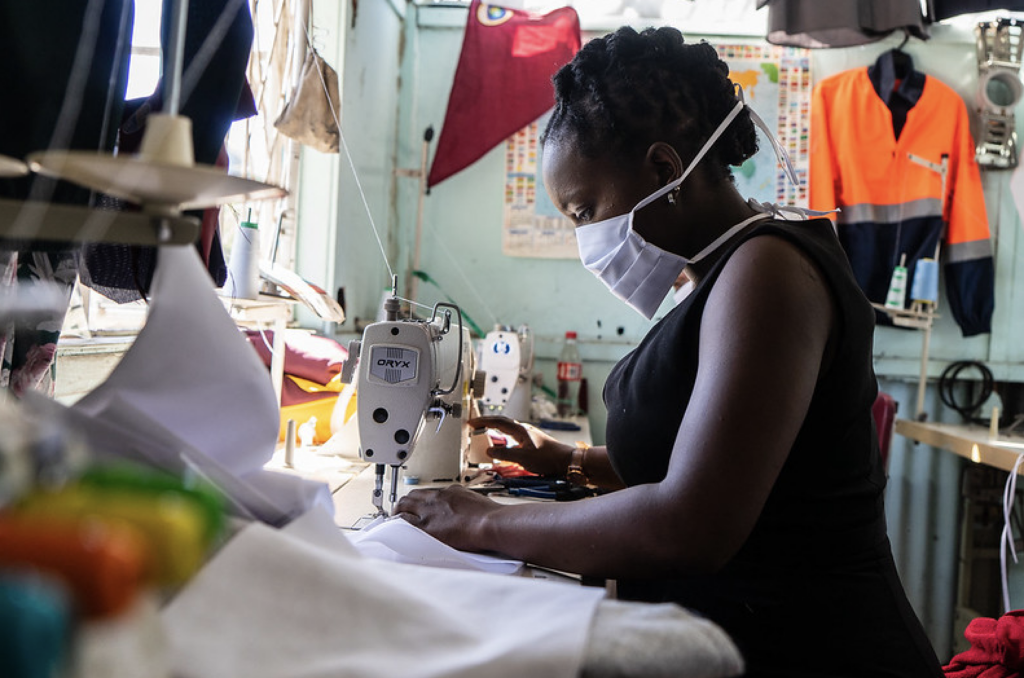24 February, 2022A side event to the OECD Garment Forum featured an in-depth discussion on achieving a new supply chain industrial relations model for the textile and garment industry.
The recently negotiated International Accord further validates a new supply chain model of industrial relations with binding rules and brand accountability for their impact on workers, rather than voluntary initiatives.
Kalpona Akter from Bangladeshi affiliate BGIWF said that the Accord has made “a phenomenal change in the country”. With 1,600 factories safer, 2,2 million workers can now work without fear.
Workers bore the brunt of the breakdown of the textile and garment supply chain, brought on by the effect of the Covid-19 pandemic on the sector’s unsustainable business model. Order cancellations led to wholesale closure of thousands of garment factories, with millions of workers laid off in countries with no social safety net. This has highlighted the precariousness of the sector’s business model and the urgent need to establish sustainable models of supply chain industrial relations.
“Covid brought a dire situation to Bangladesh, where we witnessed the precarious side of business model during lockdown. When workers are not paid, they starve as there are no social security and no unemployment benefits in the country,”
said Kalpona Akter.
IndustriALL and its affiliates have launched discussion on the change needed in the sector, including the urgent need for social protection for garment workers, which would include unemployment insurance, sick pay, social security and severance pay. The current model, where severance is the only form of social protection, led to wage theft during the pandemic.
Jason Judd from ILR School/Cornell University presented a research paper commissioned by IndustriALL, which looks at finding a welfare fund with legally binding mechanisms. Such a fund would need to be transnational in scope and include, among other things, the setting of compensation levels across many countries, dispute resolution processes and union access for workplace inspections to verify compliance.
“But there are obstacles to reaching a legally binding agreement for the sector,”
said Jason Judd.
“Who are the counterparties? Buyers and factory owners are not organized. Governments can require severance from a brand, but if there is no enforcement it will not be effective. And where is the leverage?”
Comparisons were drawn with the International Transport Federation (ITF), who every two years engage with maritime employers in the International Bargaining Forum, where a framework agreement is negotiated. Once the framework agreement has been negotiated, ITF affiliated unions begin local negotiations with companies in their country. These local negotiations result in national and sometimes company level IBF agreements. While the entitlements may vary slightly, all IBF agreements must be within the IBF framework agreed for the period.
“This is a unique set up and the only example of an international collective bargaining agreement. Employers pay into a fund dedicated to seafarers and an inspection scheme has been set up with the ITF inspectorate policing the agreements,”
said Ruwan Subasinghe, ITF legal director.
“And importantly, it contains significant remedies for workers faced by sudden changes in the industry.”
Social protection affects political stability and thus core capital markets. Investors are increasingly focusing on labour rights in the supply chain and tend to value strong agreements between brands and unions.
“We envisage investors playing a key role in supply chain workers’ rights,”
said Elizabeth Umlas, IndustriALL senior advisor on capital strategies.
"Investors understand the need for robust and resilient supply chains, which are predicated in part on a healthy and stable workforce. Investors are also recognizing how human rights violations and poor working conditions in global supply chains reflect poor company practices."
Closing the discussion, IndustriALL garment and textile director Christina Hajagos-Clausen reiterated the call from IndustriALL and affiliates call on global brands and suppliers/manufacturers to put an end to wage theft and to negotiate a global agreement to strengthen the social safety net.
Photo: A woman at work at a face mask and garment manufacturing factory, Harare, Zimbabwe.
Credit: KB Mpofu / ILO
